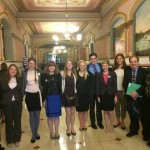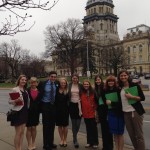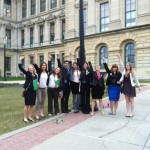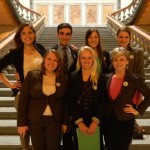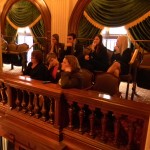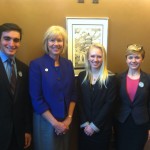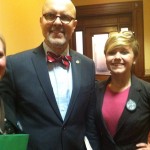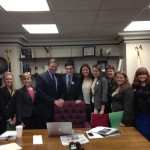A print management solution called PaperCut is being deployed this summer to help reduce print costs and the environmental impact of printing.
As a user prepares a print job, PaperCut shows the environmental impact of printing in three statistics – trees, greenhouse gases and energy.
One of the primary aims of PaperCut is to reduce printing levels by reminding users to pay attention to their printing behavior. Giving individuals a tool to monitor and adjust their printing habits typically reduces printing by 10 percent.
Options for filters and restrictions, such as stopping mistakes like printing a 100-page document instead of the one interesting page, and forcing double-sided printing, can reduce printing by another 10-30 percent.
Textile Recycling At IWU
From Matthew J. Drat ’84
Development and Community Relations Manager,
Home Sweet Home Ministries
Even though May Term is not yet complete, Home Sweet Home Ministries is again pleased to share the results of our textile recycling program on the IWU campus. The program, in its third year, places collection containers at various locations on campus where students, faculty and staff can drop off their textiles (clothing, etc) and then Home Sweet Home’s HSHRenew program repurposes those items. The resource dollars generated by HSHRenew supports individuals struggling with homelessness and poverty via the services at Home Sweet Home Ministries.
For this school year, HSHRenew at Home Sweet Home Ministries collected nearly 5,000 pounds of textiles on the campus of IWU. That is a tremendous impact on the environment and on the men, women and children at Home Sweet Home. For example, the resources generated can help pay for any entire day of meals at our soup kitchen, meals that affect not only the body, but the mind and spirit as well.
As an alumnus of IWU (Class of ’84) I am particularly happy to see how my alma mater is engaging our local community AND changing lives of our neighbors.
Take Your Bike With You
Students should remember to take their bikes home with them after May Term, or sign up to use indoor storage available on campus. Be aware of the University’s policy regarding abandoned bikes.
Vegetarians & Vegans, Victorious!
The student organization Vegetarians & Vegans, Victorious! hosted a food tasting event at the Hansen Student Center in April, with funding support from Student Senate.
The group provided recipes that were prepared by Sodexo, some of which have been adopted as new options for the vegetarian section at Bertholf Commons.
Volunteer at the Downtown Bloomington Farmers’ Market
Volunteers are needed to help keep the award-winning Farmer’s Market flowing smoothly all season. Visit the invitation page, submit your email address, then choose the shifts you’d like to sign up for.
Stop Paying to Truck Water to Campus
Offices in Holmes Hall and The Ames Library will be ending contracts for Culligan bottled water and will instead make use of hydration stations. A station is already installed in Ames, while savings from the terminated contract will be used to install one or two stations for filtered drinking water in Holmes Hall.
The GREENetwork and Sierra Student Coalition urge other campus offices to consider conserving both costs and environmental resources by making use of filtered tap water.
Students Raise Funds and Awareness for Safe Water
Students in an Illinois Wesleyan University global health course have raised more than $1,000 for clean water and sanitation initiatives in developing countries. Read more
Tap into WaterAid
Monday-Tuesday, April 21-22
Memorial Center Dugout and Lobby, State Farm Hall
Wednesday, April 23
The Ames Library
Students from Health 280: Perspectives in International Health are raising money and awareness to bring safe water and sanitation to millions of people in need through the organization WaterAid.
To donate and learn more about WaterAid, visit their tables in the Dugout from 11 a.m.-1 p.m. or the State Farm Hall Lobby from 1-3 p.m. on Monday or Tuesday, April 21-22, or at The Ames Library from 2-6 p.m. on Wednesday, April 23.
Calendar of Events
Sustainability Events – View as Google Calendar
Students Attend Environmental Lobby Day
Hannah Scatterday ’17
Kahri Jung ’16
Nicole Chlebek ’16
Dana Rotz ’14
Cameron McKee ’17
Amanda King ’15
Kirsten Slaughter ’16
